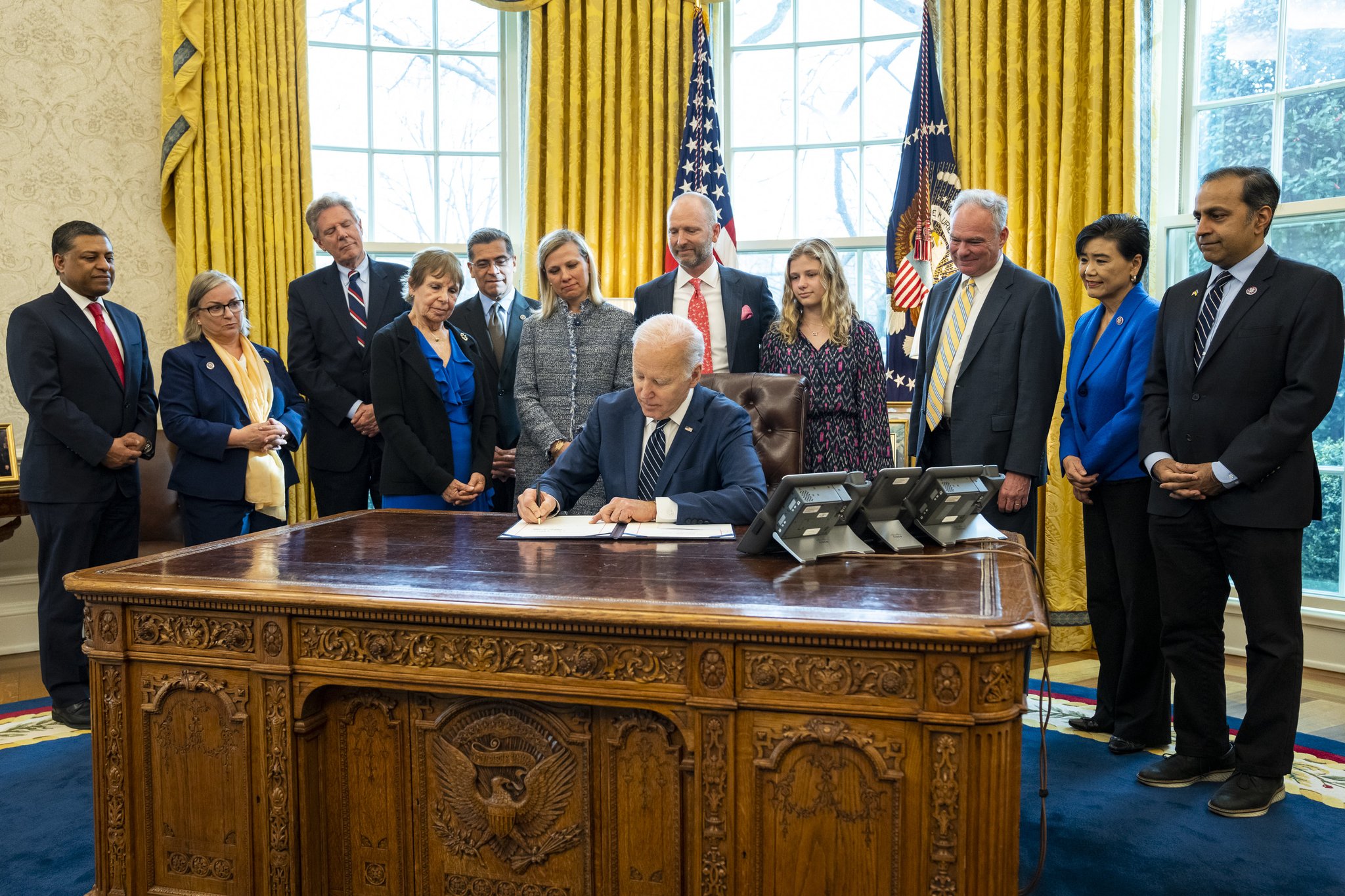Kaine Statement on His Bipartisan Bill to Promote Health Care Provider Mental Health Becoming Law
Legislation Named in Honor of Dr. Lorna Breen, a Charlottesville Native Who Died by Suicide While Serving on Front Lines of the Pandemic
For photos of the White House signing ceremony that Kaine joined, click here
WASHINGTON, D.C. — Today, U.S. Senator Tim Kaine, a member of the Senate Health, Education, Labor, & Pensions (HELP) Committee, released the following statement after joining President Biden as he signed Kaine’s bipartisan Dr. Lorna Breen Health Care Provider Protection Act, comprehensive legislation to reduce and prevent suicide, burnout, and mental and behavioral health conditions among health care professionals:
“The mental health consequences of COVID-19 are particularly acute for our frontline health care healers, who’ve made tremendous sacrifices to care for their patients in uncharted times. This bill is a critical first step to provide them with mental health resources to cope with the challenges they face every day. Supporting our health care workforce will benefit everyone because we all need great medical professionals to take care of us and our loved ones. By keeping our health care professionals healthy, everyone in society wins.”
Named in honor of Dr. Lorna Breen, a physician from Charlottesville, Virginia who was working on the front lines of the pandemic in New York and died by suicide in the Spring of 2020, the Dr. Lorna Breen Health Care Provider Protection Act is a critical step to address mental health concerns facing our health care providers during COVID-19. Kaine was joined in introducing the legislation by U.S. Senators Todd Young (R-IN), Jack Reed (D-RI), and Bill Cassidy, M.D. (R-LA), as well as U.S. Representatives Susan Wild (D-PA-07), Raja Krishnamoorthi (D-IL-08), Judy Chu (D-CA-27), and David McKinley (R-WV-01).
“We want to thank Senator Kaine and the bipartisan, bicameral supporters of this first of its kind legislation. We have learned so many lessons from COVID-19. One of those is that supporting the well-being of the health care workforce is absolutely critical,” said Jennifer Breen Feist and Corey Feist, Co-Founders of the Dr. Lorna Breen Heroes’ Foundation.
Specifically, the Dr. Lorna Breen Health Care Provider Protection Act will:
- Establish grants for health profession schools, academic health centers, or other institutions to help them train health workers in strategies to prevent suicide, burnout, mental health conditions, and substance use disorders. The grants would also help improve health care professionals’ well-being and job satisfaction.
- Seek to identify and disseminate evidence-informed best practices for reducing and preventing suicide and burnout among health care professionals, training health care professionals in appropriate strategies, and promoting their mental and behavioral health and job satisfaction.
- Establish a national evidence-based education and awareness campaign targeting health care professionals to encourage them to seek support and treatment for mental and behavioral health concerns.
- Establish grants for health care providers and professional associations for employee education, peer-support programming, and mental and behavioral health treatment. Health care providers in current or former COVID-19 hotspots will be prioritized.
- Establish a comprehensive study on health care professionals’ mental and behavioral health and burnout, including the impact of the COVID-19 pandemic on such professionals’ health.
Since first introducing the bill in July 2020, Senator Kaine has been a leader in addressing the mental health impact of the pandemic on health care workers and has continued to urge Congress to prioritize this issue. Some provisions modeled after the Dr. Lorna Breen Health Care Provider Protection Act were funded by the American Rescue Plan Act, COVID relief legislation signed into law in March 2021, but the full bill is needed to authorize all of its provisions and provide more direction on how the money should be spent.
The legislation passed the Senate on February 18, 2022 and the House on December 8, 2021.
Senator Kaine would like to thank his former and current Health Policy Advisors Katie Wright and Samantha Koehler, respectively, for their steadfast work to get this legislation across the finish line.
###


